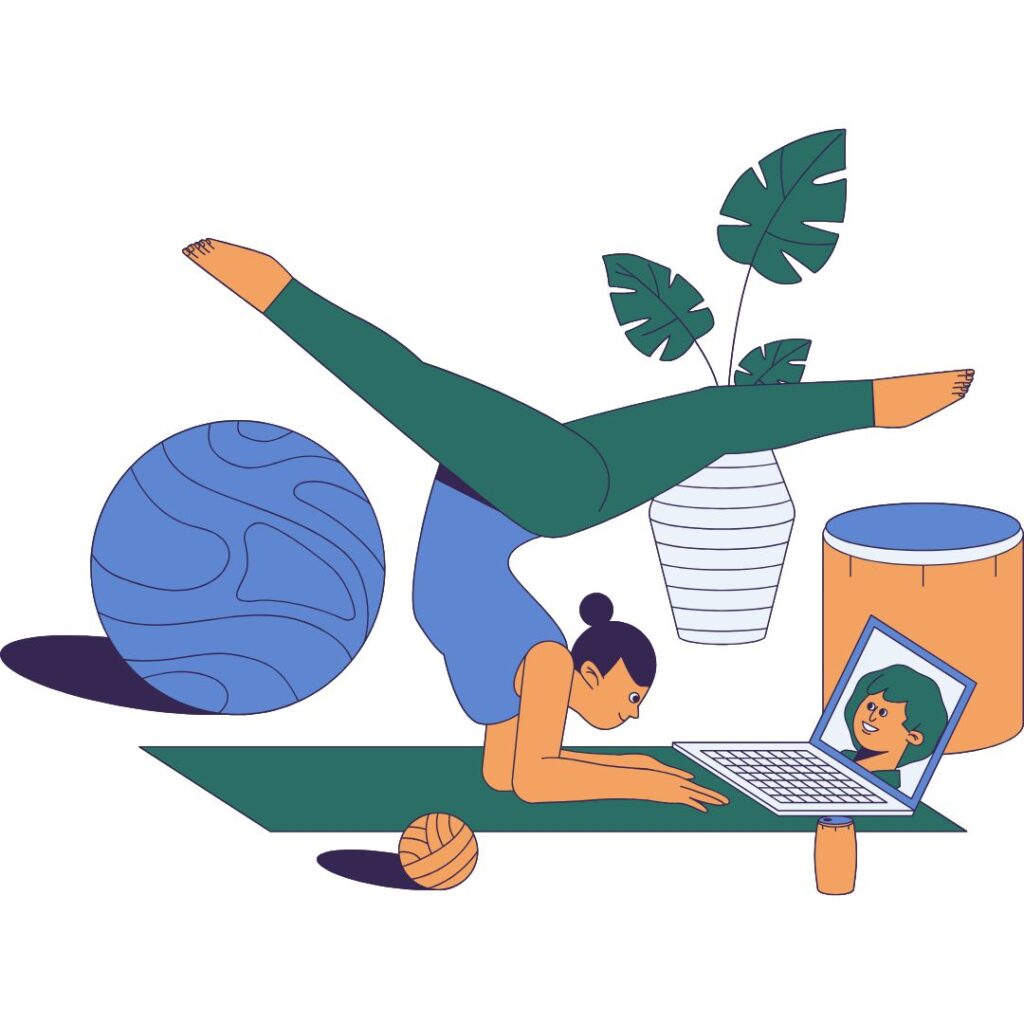
Balancing parenthood and a job can feel like a juggling act. The long sleepless nights, the guilt of not being present for every moment, combined with the everyday challenges of a job, can create an overwhelming sense of stress and anxiety when transitioning back to work after parental leave. These feelings can be even more pronounced for moms after maternity leave, as they are traditionally the ones expected to be nurturing and attentive to their child’s needs.
Another challenge of going on parental leave is the FOMO (Fear of Missing Out): You’ll feel like you’re missing out on all the opportunities you could have taken on, if you hadn’t gone on leave. Having an established career before deciding to shift focus to parenthood can be beneficial but not everyone has the time or preference to wait to have kids. If you’re a career-focused person, putting everything on pause to have children can be frustrating and challenging.
For working parents to be less stressed, less overwhelmed and less exhausted, both inside-out and outside-in approaches are critical. While it’s important that we push for more reform from governments and organizations, we must also tackle working parents’ challenges from inside our homes, heads and hearts.
1. Acknowledge Parenthood Challenges and Appreciate the Rewards
Working parenthood involves using a lot of time, energy and focus in different areas and directions. If you were to delegate all your parenting responsibilities, e.g. nighttime feedings, diaper changing and mountains of laundry, you’d be less likely to enjoy the rewards of parenthood. Connecting to a sense of purpose can be in your control. For example, you’d rather stay on the couch and watch an episode of your favorite Netflix show than going running. You choose to go running for the satisfaction of building endurance, the connections you make along the way or simply the joy of watching the sun rise.
A working parent journey is not easy, but you don’t have to hate it. Your two-year-old can bring more meaning to your life, whether the meaning comes from doing your work, e.g. through doing work that contributes to a greater good, or work that keeps your in good financial position to provide a better-quality life for your baby.
2. Decide What’s Best for You – Staying Home vs. Returning to Work
Staying at home with your kids is not a virtue, nor is going back to work. If you feel you must stay home, start by asking yourself questions like:
- Do my children need me around because they have intensive needs?
- Is my salary too low to justify the cost of daycare?
- Is my job stressful to the point of pushing me completely out of the workforce?
If you decide you must stay home, you can still feel empowered and professionally oriented. Staying connected to your professional network, exploring professional development opportunities and building a support network are great ways to continue your career growth. Every step, no matter how small can make a difference over time.
3. Find Good-Quality Care
There is solid evidence that high-quality childcare can be more developmentally enriching than a home environment. It simply offers a more structured environment, more resources and more opportunities for social interaction.
If you decide, you’d like to go back to work, it’s crucial that you find good quality care for your children. This will ensure their wellbeing and development while also providing you with peace of mind as you focus on your professional responsibilities outside the house.
4. Invite Your Partner to More Equitably Split the Domestic and Childcare Duties
Primary caretaking, appointment making and diaper changing duties shouldn’t be imposed on one parent only (it’s often mothers), especially when they’re also breadwinners. All the tasks and responsibilities take up a huge amount of emotional and mental space that can be overwhelming. Balanced parenting is not only important to your physical and mental wellbeing, it also helps lead a healthier, happier and more peaceful life for your family.
5. Don't Forget about "Me-Time"
Parenthood lives are crammed full of tasks, dramas and stressors and it’s all too easy to put the care of our bodies and minds on the backburner. Your body and mind are your true home and you don’t get another one. So, it’s crucial that you take care of it, especially when you’re juggling the responsibilities of parenthood. Find out what works best for you to give yourself the “me-time” you need. Eat nutritious food, hydrate, exercise, meditate, sit in silence...
Taking time for selfcare, even is small ways, can help you stay grounded, focused and better equipped to face the challenges of parenthood. Remember, you can’t pour from an empty cup.
6. Delegate Tasks to Free Up Time to Spend with Your Kids
Delegating tasks at home and at work frees up valuable time that helps you spend more time and bond with your kids. Delegating includes both household chores and work-related tasks and responsibilities. It helps distribute the workload more evenly and ensure efficiency in managing daily work/household duties.
7. Outsource Household Chores
This is the second step of making delegation your superpower. Outsource big tasks and small tasks to free up chunks of time to spend on yourself or on your baby. The real win lies not just in the physical time saved, but also in freeing up the mental space needed to plan and do the work. Below are some examples of chores recommend to be outsourced:
- Booking appointments
- Furniture assembly
- Laundry and dry-cleaning
- Grocery shopping
- Cooking

Transitioning back to work after parental leave is hard. You’ve been out of the flow of the office for weeks or months, and you’re returning as a different person with new priorities and concerns.
Scientific research highlights the importance of parents prioritizing their physical and mental health after returning to work following parental leave. Studies consistently show that parents who maintain a balanced well-being are better equipped to manage the demands of both work and family life. Physical health contributes to higher energy levels and improved productivity, while mental health plays a key role in emotional resilience and decision-making. Furthermore, parents who take time to care for themselves are more likely to be present and engaged with their children, fostering a positive home environment.
A research study also shows that partner and family support, and the opportunity for fathers to work under a flextime system after childbirth seem to increase both breastfeeding initiation and duration.
Investing in self-care not only benefits the parents but also enhances the overall family dynamic and long-term well-being of both the parents and their children.
